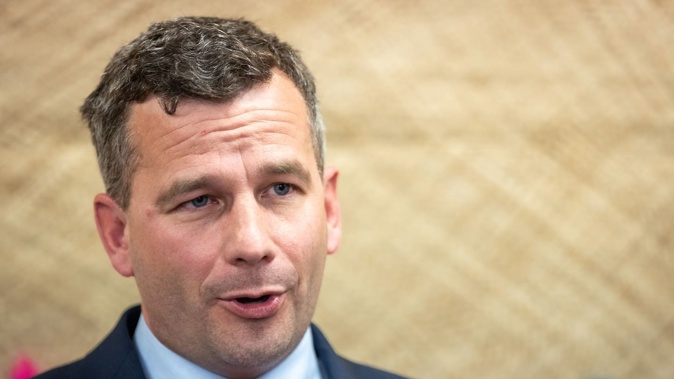
David Seymour is set to provide updated guidance around school attendance as the country’s measles outbreak grows, spreading into Wellington and Auckland colleges.
The acting Prime Minister is this afternoon getting his serology testing done as part of the response to the measles outbreak.
The testing checks whether people have had their measles vaccinations and can be used to ensure students are able to continue attending school.
After the test, Seymour will speak to the media and give an update on the Government’s response, in particular, guidance around school attendance.
There are currently 14 known measles cases in New Zealand, and the number of close contacts has risen to about 2100.
A Year 11 student at Wellington College has been diagnosed with measles. They were at school between October 13 and 15, and also travelled on the Wellington College school bus No 736 on the mornings of those days.
Auckland Grammar School is also affected. Parents have been told that a person infected with the illness was at the school on Friday, October 24.
They did not say whether the person involved is a student or a staff member, but students in Years 9 and 10 had been in contact with the person and, as a result, they were to stay home while public health officials carried out contact-tracing measures.
Health NZ said the risk of further measles cases, contacts and exposures across the country remains “very high”.
Yesterday, Health Minister Simeon Brown said he is receiving advice on allowing babies to receive the measles vaccine.
Young children in New Zealand don’t normally get their first MMR vaccine until they reach 12 months. It is given as part of the National Immunisation Schedule at ages 12 months and 15 months.
Brown said he is receiving advice on Measles, Mumps and Rubella (MMR) zero vaccination, which is a vaccination for infants aged 4 months to under 12 months administered during measles outbreaks for added protection.
In 2019, New Zealand had its largest measles outbreak since 1997, in which 700 people in New Zealand required hospital treatment and 83 died in Samoa.
Health NZ said getting two doses of the MMR vaccine after 12 months of age protects 99% of people from measles and is free for most people.
Measles is so infectious that it requires an immunity rate of at least 95% in the community to prevent spread.
Jaime Lyth is a multimedia journalist for the New Zealand Herald, focusing on crime and breaking news. Lyth began working under the NZ Herald masthead in 2021 as a reporter for the Northern Advocate in Whangārei.
Take your Radio, Podcasts and Music with you









